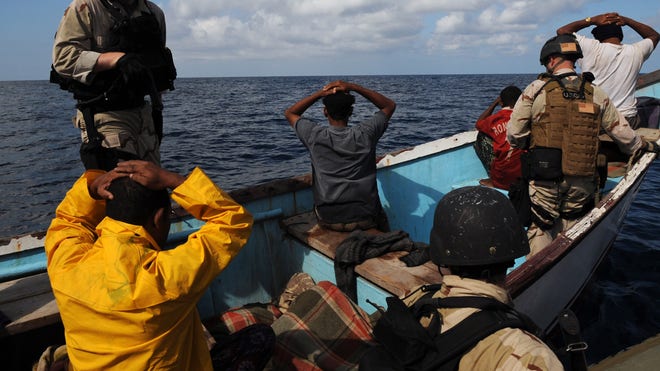By Brendan Oliver Bergh
Impunity Watch Reporter, South America
MEXICO CITY, Mexico – The fight against illegal immigration in the United States has forced human traffickers into the sea. One new shocking twist has led to a dangerous trend as human traffickers have begun abandoning poor migrant works at sea, at the mercy of the sea and the slim hope that either the U.S. coast guard or Mexican navy picks them up.

In the past decade the United States has taken to tightening the security across the land border, doubling the number of Border Patrol agents and building hundreds of miles of fences and barriers in order to combat the stem of illegal immigration and drug smuggling. Illegal human traffickers and drug traffickers have remained consistent with their attempts to continuing their illegal importation, and have increasingly taken to the seas. However smuggling hundreds of migrant workers at a dock or abandoned beach is complicated and dangerous as an operation, leaving a high chance of being discovered, leading to another option, abandoning the cargo at sea.
With traffickers demanding high operating fees beforehand, there is little reason for them to finish the operation. At sea, they will feign engine trouble or radio trouble and force the migrants on to small boats without food or radios and tell them that they will return for them, without any intention of doing so. The Mexican navy has in the past months found an average of 10-12 boats of the coast of Baja California with wayward seafarers presumably abandoned by the smugglers.
With estimates of upwards of 300,000 migrants smuggled into the United States each year, the trend of sea smuggling is a shocking one. In order to battle this new frontier, it is likely that the coast guards and border patrols will likely need increased resources in order to watch the high seas. But either way, sources have indicated that there is likely going to be a “Dramatic increase now in drowning and other kinds of water fatalities and other kinds of danger associated with crossing in the water.”
The problem has become so perverse that Mexican maritime authorities have issued a warning “Do not allow yourself to be fooled and put your life at risk by leaving it in the hands of people without scruples whose only goal is obtaining money without caring about the lives of other human beings.”
One survivor indicated that she agreed to pay $12,000 to be smuggled via boat into the United States. She was found abandoned in a 31-foot vessel in the New Port harbor.
For more information, please see:
Fox News Latino – Smugglers Abandoning Migrants At Sea, Mexico Says – 30 April 2013
CNN – Mexico: Traffickers Abandoning Immigrants At Sea – 29 April 2013
UNODC – Migrant Smuggling – 1 January 2012
CNN – Mexican Smugglers Use Pacific As New Route – 23 September 2009



